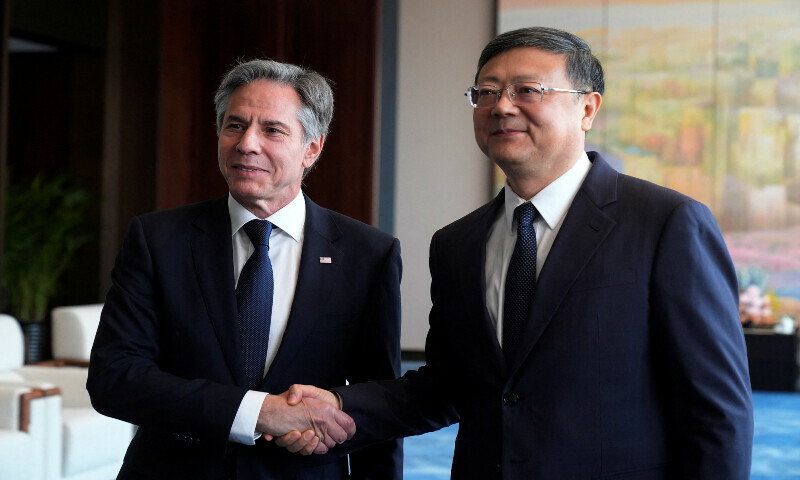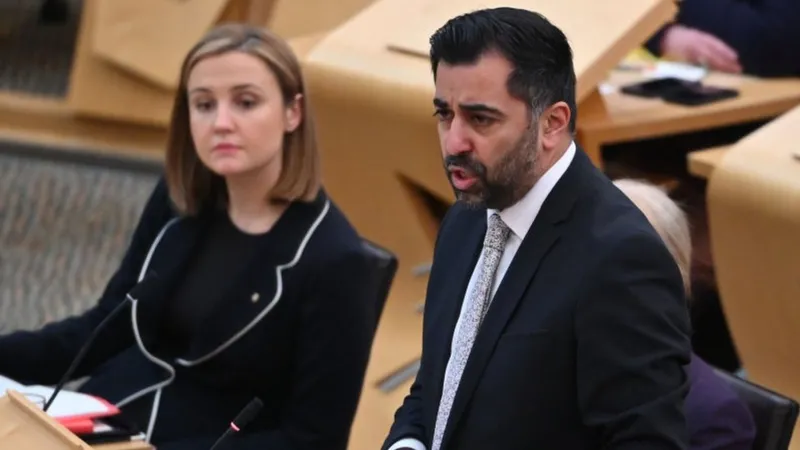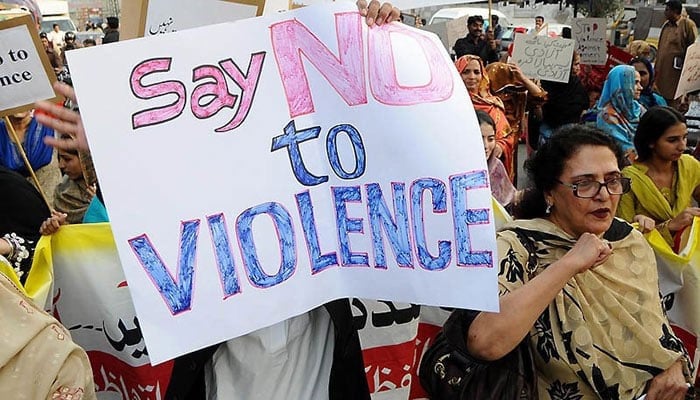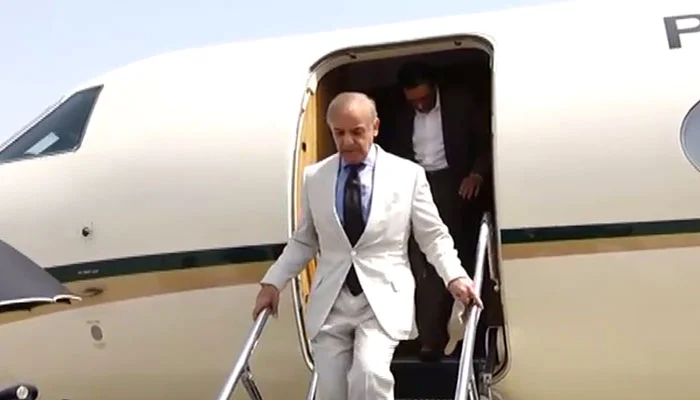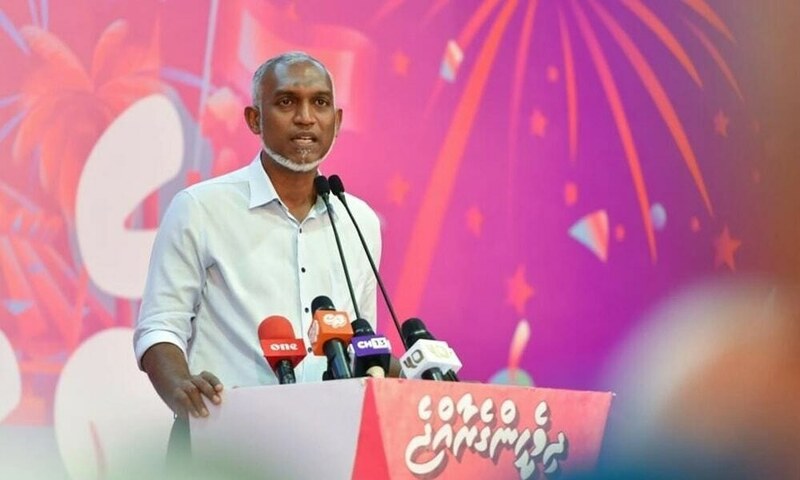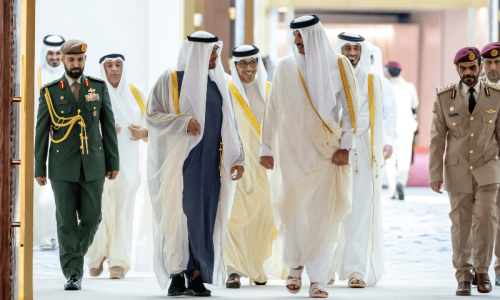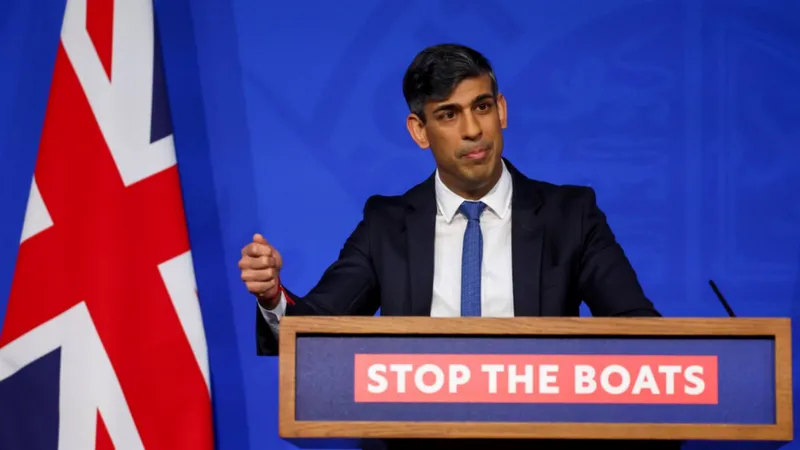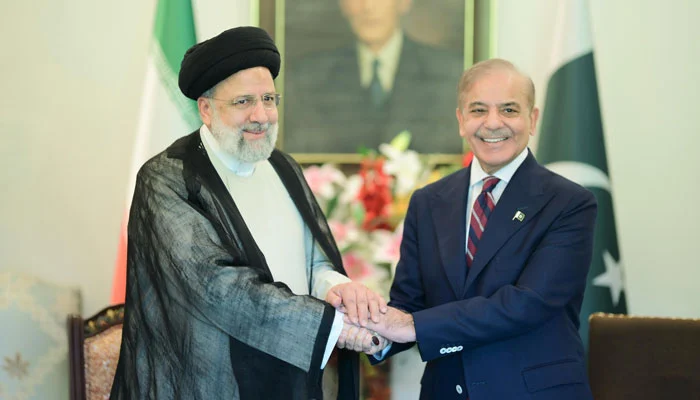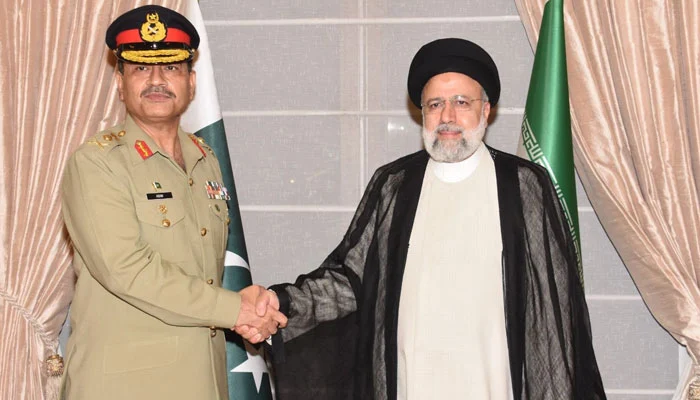A day before meeting Beijing’s top brass to tackle thorny issues including Russia, Taiwan and trade, Blinken’s visit to Shanghai has seen him sample local food, watch a basketball game and stroll along the city’s famous Bund promenade.
Visiting the local Communist Party leader in a room with sweeping views of the Shanghai skyline, Blinken said US President Joe Biden was committed to “direct and sustained” dialogue between the world’s two largest economies after years of mounting tension.
“I think it’s important to underscore the value — in fact, the necessity — of direct engagement, of speaking to each other, laying out our differences, which are real, seeking to work through them,” Blinken said.
“We have an obligation for our people — indeed an obligation to the world — to manage the relationship between our two countries responsibly.”
The Chinese Communist Party secretary for Shanghai, Chen Jining, welcomed Blinken partly in English and spoke of the importance of US businesses to the city.
“Whether we choose cooperation or confrontation affects the well-being of both peoples, both countries and the future of humanity,” Chen told him.
The country’s financial capital, Shanghai is often a stepping stone to power in China, with President Xi Jinping previously serving briefly in the city.
China has not announced plans for Blinken to meet Xi, although on Blinken’s last visit in June, they saw each other in a meeting announced at the last minute.
On Thursday, Blinken also met students at the Shanghai campus of New York University, where he voiced hope for more Americans to study in China.
He insisted the United States was committed to welcoming Chinese students.
Beijing has repeatedly alleged that Chinese nationals with valid travel documents, including students, have been subject to aggressive interrogations and deportations at US airports.
“President Biden and President Xi are determined to strengthen our people-to-people ties,” Blinken said.
Pressing on Russia
Blinken, the first US secretary of state in 14 years to visit Shanghai, opened his visit on Wednesday evening at a restaurant serving steamed buns.
Sporting a suit without a tie, he ate with his senior staff in a shopping arcade as curious onlookers snapped pictures.
Blinken then went to watch a basketball game between the Shanghai Sharks and Zhejiang Golden Bulls, staying until the end of the nail-biting play-off.
Such softer diplomacy, once a staple of US-China relations, would have been unimaginable until recently, with hawks in both countries speaking of an emerging new Cold War.
Blinken’s aides hope his smiling persona at public events draws an implicit contrast to his Russian counterpart Sergei Lavrov and his gruffer approach when he visited China earlier this month.
Blinken is expected to raise concerns about China’s relationship with Russia when he meets the leadership in Beijing.
Although US officials were initially pleased that Beijing has not shipped weapons to Russia for its war in Ukraine, they now say that China’s alarm at Moscow’s setbacks on the battlefield has prompted it to export vast quantities of industrial supplies to Russia.
US officials believe China is more receptive to Western concerns as it seeks to focus on managing economic headwinds at home and wants to avoid friction with the West.
But China is also furious about a series of moves by Biden — who is facing a tough re-election fight in November against Donald Trump — they say serve to constrain the Chinese economy.
Most recently, the US Congress approved legislation that would force the divestment of blockbuster social media app TikTok from its Chinese owners or face a ban in the world’s largest economy.
Biden supports the legislation, arguing that TikTok, popular among young people, poses security and privacy concerns. China has accused the United States of unfair economic coercion.
Unusually, Trump has distanced himself from a TikTok ban. He has otherwise championed a tough line on China, with vows to raise tariffs drastically if he returns to office.
US officials also say that Blinken will encourage China to act with restraint as Taiwan inaugurates a new president next month.
China claims the self-governing democracy as its own and has not ruled out using force to seize it.
Privately, US officials were relieved by China’s approach during Taiwan’s election, believing that easing US-China tensions helped.
They assessed that Beijing’s assertive military moves did not go beyond past precedent.


